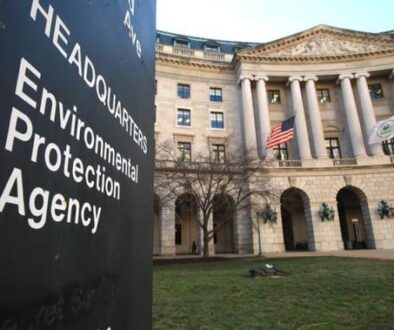Postcard from California: State’s status as clean energy pacesetter threatened by Trump’s attacks
 For decades, California has been on the cutting edge of US environmental policy. The state has enacted landmark measures to regulate air and water pollution, protect residents from exposure to toxic chemicals, and combat the climate crisis. Many of its groundbreaking policies have spread to other states.
For decades, California has been on the cutting edge of US environmental policy. The state has enacted landmark measures to regulate air and water pollution, protect residents from exposure to toxic chemicals, and combat the climate crisis. Many of its groundbreaking policies have spread to other states.
But its status as the nation’s green gold standard – particularly in the crucial arena of clean energy and climate – shows signs of slippage.
The biggest threat comes from the Trump administration. The White House is waging war on some of California’s most progressive environmental initiatives, from its pioneering auto exhaust standards to its ambitious mandates for electric vehicles.
At the same time, economic exigencies and political calculations are pressuring Gov. Gavin Newsom and state lawmakers to retreat. They are slowing down efforts to transition from fossil fuels to clean energy, to make big polluters pay for the damages caused by climate change, and to expand the adoption of rooftop solar panels.
On President Trump’s first day back in office, he vowed to kill California’s first-in-the-nation rule that by 2035 all new cars and passenger trucks sold in the state must be zero-emission vehicles (ZEVs). His administration has since dealt California’s clean-air ambitions a series of body blows.
- In June, he signed legislation quashing the ZEV rules by revoking California’s right to set its own stringent tailpipe standards. Anticipating Trump’s move, the state had already abandoned a first-in-the-world plan to phase out the use of diesel cargo trucks.
- In July, Trump’s tax-and-budget bill ended the $7,500 federal tax credit to buyers of new electric vehicles. More than 2 million ZEVS are on the road in California, but the once-rapid growth in sales of new models has plateaued.
- Trump’s Environmental Protection Agency wants to end the classification of greenhouse gases as a public health threat, the legal basis for federal regulations on emissions of carbon dioxide, methane and other planet-heating pollutants from autos and industry.
The administration’s actions will make it dauntingly tough for California to meet its legally mandated goal of “net zero” carbon emissions by 2035. And with less than a month remaining in this year’s legislative session, politicians in Sacramento aren’t making it any easier.
The session “has been defined by stalled solutions, handouts to corporations, and Big Oil giveaways,” said an alert this month from the nonprofit advocacy group California Environmental Voters (where I worked decades ago).
After Trump’s re-election, attributed in part to voters’ cost-of-living concerns, Newsom and Democratic lawmakers promised to focus on energy affordability. For Newsom, that has meant a head-spinning turn, from railing against Big Oil “price-gouging” to pushing measures aimed at keeping California’s sky-high gas prices in check.
In Newsom’s first term, he called for an end to oil and gas drilling in California by 2045, and his administration largely stopped permitting new wells in oil-rich Kern County. After a $5 million industry campaign blaming over-regulation for high pump prices and refinery closures, Newsom now wants to make it easier to drill, by relaxing rules for environmental reviews.
Newsom’s critics say he is trying to moderate his image as an anti-oil, pro-regulation environmentalist to position himself to run for president in 2028.
“It’s super disheartening to see [Newsom] pivot to the middle,” Alex Nagy, California program director of Sunstone Strategies, an environmental consulting firm, told the Los Angeles Times. “It’s all with the oil industry whispering in his ear.”
In the wake of the devastating wildfires in Los Angeles earlier this year, Democrats in Sacramento introduced two bills to establish a so-called Polluters Pay Superfund. Modeled on the federal Superfund for chemical cleanups, it would make the largest oil companies pay into a fund to repair and mitigate the damages caused by climate change.
New York and Vermont passed climate Superfund bills last year, which the Trump Administration is suing to overturn. But in California, Senate Bill 684 and Assembly Bill 1243 stalled in July and were put on hold for next year. A similar bill died in the Senate last year.
State records analyzed by the advocacy group Global Witness showed that fossil fuel interests who opposed the bills spent more than $30 million lobbying at the state capitol in 2024 and the first half of 2025.
California’s most troubling clean energy backsliding is on solar energy.
Since former Gov. Arnold Schwarzenegger launched his Million Solar Roofs initiative in 2006, Californians have installed solar panels on almost 2 million homes, spurred by the promise of rebates on their utility bills for the electricity the panels generate.
But in 2022, Newsom’s appointees on the state Public Utilities Commission, bowing to lobbying by the state’s Big Three utilities, slashed the rebates to new solar customers by 75 percent. Installations plummeted. Environmental groups sued the commission to overturn the rebate cut, and recently won a state Supreme Court decision allowing the suit to go forward.
An analysis by the nonprofit Solar Rights Alliance found that Newsom has collected twice as much in campaign donations from utilities and their affiliated labor unions as his predecessor, ex-Gov. Jerry Brown. Dave Rosenfeld, executive director of Solar Rights Alliance, told Mother Jones magazine that Newsom “has figured out how to be a green governor and still pursue the utilities’ anti-rooftop solar agenda.”
To be sure, California hasn’t thrown in the towel in the fight for clean energy and a livable climate. The state has sued to challenge Trump’s attacks on ZEVs and tailpipe standards. Last year, state Attorney General Rob Bonta sued five giant oil companies for what he termed their “decades-long campaign of deception” about fossil fuels’ harm to the climate.
But climate advocates are restive. Last week, a coalition of 140 environmental groups called out Newsom and legislative leaders “for reversing course on their promises to take concrete steps against Big Oil that would move California towards a clean energy future.”
“Lawmakers promised a legislative session focused on affordability, yet what we have seen is a commitment to the status quo with more profits for polluters while communities continue to bear the steep health and financial costs of pollution,” Raquel Mason of the California Environmental Justice Alliance said in a coalition statement. “We are here to demand legislators focus on affordability for people, not polluters.”
- Bill Walker has more than 40 years of experience as a journalist and environmental advocate. He lives in California’s San Joaquin Valley.
(Opinion columns published in The New Lede represent the views of the individual(s) authoring the columns and not necessarily the perspectives of TNL editors.)



